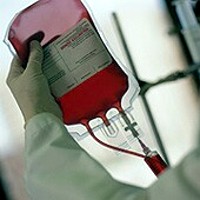Researchers at University of Maryland School of Medicine in Baltimore have developed a new investigative blood test that can help predict the risk of heart failure and cardiovascular death earlier than previously possible. The test is particularly useful in older people who do not have symptoms of heart failure.
The new test measures troponin T, a marker for the biological process of cell death that leads to heart failure. Current cardiac troponin T blood tests do not detect troponin in seemingly healthy people and are often used in hospital emergency rooms to clarify whether the source of chest pain is a heart attack or something else.
The new test detects troponin levels that are 10 times lower than previous tests. The researchers found the marker in two-thirds of people without symptoms age 65 or older, whose blood samples were collected and stored for up to 18 years as part of a long-term cardiovascular research project, the Cardiovascular Health Study.
This study began in 1989 and followed more than 4,000 people age 65 and older who were not hospitalized, did not have symptoms of heart failure, and were not experiencing an acute medical illness. The blood samples were stored at very low temperatures to stabilize the proteins in the samples for a period of 10-15 years, which enabled the University of Maryland team to look back in time with modern testing tools.
The new test is not yet commercially available in the United States. However, Roche Diagnostics provided funding and laboratory reagents for the cardiac troponin T assay. Other funding came from National Institutes of Health and the University of Pittsburgh Claude D. Pepper Older Americans Independence Center.
Results of a study were presented at the Scientific Sessions of the American Heart Association on November 15, 2010, and simultaneously published online in JAMA, Journal of the American Medical Association.
* * *


 RSS - Posts
RSS - Posts
[…] Read more: New Blood Test Indicates Heart Failure Potential […]